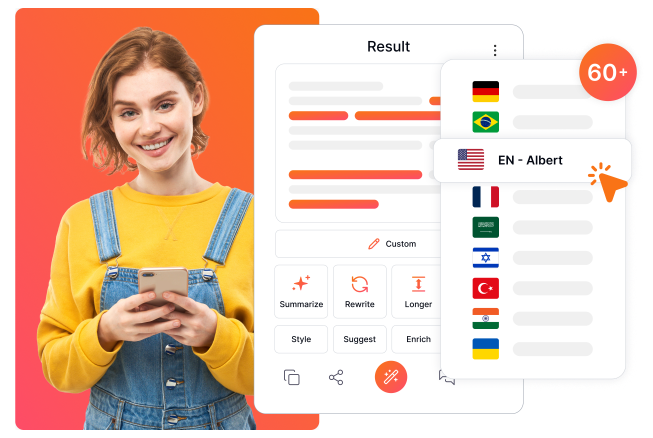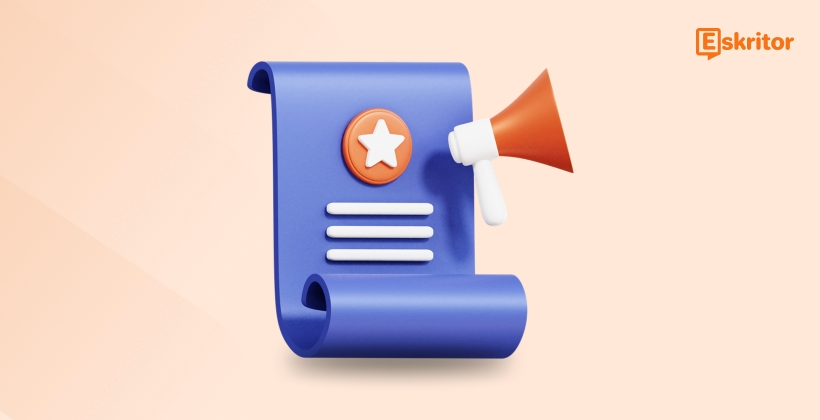The Future of AI Writing Technology Explained
The Future of AI Writing Technology Explained
Blog Article
Effortless Precision with AI Editing Solutions
Artificial intelligence (AI) publishing technology has evolved fast in the last decade, reshaping the way we create and interact with written content. From syntax correction resources to AI-generated novels, the possibilities look limitless. But where precisely is this technology going? Let's examine the inventions, challenges, and possible future of AI Editing.

How AI Publishing Technology Operates Nowadays
At their primary, AI publishing engineering relies on Organic Language Processing (NLP) and unit learning. These technologies enable types to comprehend, create, and improve human language. Methods available today excel at responsibilities like:
1. Content Creation
AI has achieved a point where it may create total blog articles, social media sayings, and even news articles. Some designs are capable of mimicking individual publishing types therefore efficiently that unique between AI- and human-written content is becoming increasingly difficult.
2. Grammar and Model Idea
AI-powered writing assistants don't only check always for syntax and punctuation mistakes; they also give ideas to enhance tone, understanding, and syntax, creating complex publishing available to a broad audience.
3. Belief Evaluation
AI can examine the mental tone of an item, permitting companies to assess how their communications can resonate with readers. This is specially useful in advertising and client interaction.
The Current Developments in AI Publishing Engineering
Many styles are shaping the next stage of AI-powered publishing instruments:
• Personalization
AI publishing engineering is significantly effective at tailoring content to individual preferences. Designs can conform to a user's publishing design, ensuring the production feels authentic.
• Multilingual Features
Several AI instruments are growing their international achieve by offering improved translation features and support for numerous languages.
• Increased Research Characteristics
AI methods today get the capability to analyze large levels of information and present fact-checked, well-researched publishing in seconds, simplifying the process for professionals in industries like law, money, and journalism.
What the Future Supports for AI Publishing Technology
1. Improved Creativity
While current AI is successful at generating material, its imagination remains limited by designs within their training data. Future AI is not just expected to help but to generate unique, topical works that concern individual imagination.
2. Easy Cooperation
Envision an AI that performs alongside you in real-time, completing your sentences, performing stay edits, and even brainstorming ideas. AI writing instruments may possibly shortly become co-authors, allowing creativity to movement uninterrupted.
3. Honest and Available Design
With growing problem about plagiarism, misinformation, and prejudice, designers will work toward more transparent AI education procedures and ethical implementation. Potential instruments will more than likely offer more detailed details and measures to ensure accountability.
Difficulties and Criteria
The development of AI writing engineering isn't without hurdles, including:
• Moral Problems

Who owns content produced by AI? Just how can we ensure AI-generated material is not spreading misinformation? These debates remain unresolved.
• Human-AI Harmony
Can AI complement human creativity or totally replace particular roles? Several writers and musicians be concerned about their relevance in an AI-driven world.
• Accessibility Separate
Not totally all businesses or parts have equal usage of cutting-edge AI instruments, increasing issues in regards to the affect with this technology on world wide inequality.
Adjusting the Way We Create
AI writing engineering continues to be in their infancy in comparison to its potential. Whether you are students crafting essays, a material marketer targeting certain readers, or perhaps a author seeking inspiration, AI instruments can continue to revolutionize the writing process. The following decade claims breakthroughs that mix individual ingenuity with machine intelligence, developing a future wherever publishing is better, accessible, and impactful than ever before.
Report this page